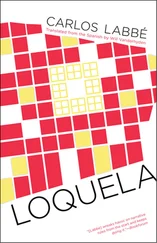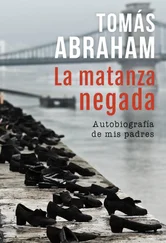Even though it was cloudy, the man emphasized, the beach was full of tourists of all nationalities. This was apparent at first glance, in the varieties of hair and skin. It was the same burning sun, the same freezing sea, but all of a sudden one was no longer in Chile, in the same suffocating, monotonous summer as always, but on a gringo or European beach where everyone spoke loudly, where there were barely any children, and women were stretched out in the sun, their breasts in plain sight. They’ve told me that’s how it is there, said the man. The beach of Babel, I remember remarking sarcastically, prompted by the biblical references he’d introduced into our conversation. The man from the service station laughed at this: Babel, yes. Just so. Asians, Islanders, Africans, Europeans, North and South Americans, everyone was speaking English. From what I was able to deduce from his description, the beach in Matanza was clearly divided into specific sectors — team sports, live music (classical, electronic, jazz, rock, indie, pop, and world music); artistic, recreational, and athletic dance; restaurants, bars, and kiosks; an ecological nudist zoo, water sports, libraries, virtual electronic games, spas, private security huts — marked off by buoys and plastic ribbons of the event’s official color, a soft florescent white that at sunset turned into a metallic blue. Still, in the middle of invisible amplification systems, areas of acoustic isolation, and the roaring of passing motors, the occasional shouts of “pan de huevo,” “cuchufli, barquillo,” “helado, helado, heladito,” “lleve la palmera pa los regalones” rose up from the town’s local vendors, authorized by the organization to supply the event with local color.
That morning, Bruno and Alicia looked for the least crowded area to lay down their towels. The Swimmers Section, about eleven meters from the water, at the center of the beach. The best spot on any of the nation’s beaches was deserted. The tourists preferred to lie down between the dunes, for more intimacy, or on the terraces of the restaurants or bars. The man from the service station arrived to the spot around three in the afternoon, carrying the theremin case, following Patrice Dounn. The Congolese was much more expressive with his music: I want to see the children, they’re at the beach, take me. . Don’t lose my case. Those were the only words he’d uttered since appearing in the kitchen that morning, after having slept off what, the man from the service station suspected, was a hangover. But he was wrong. That man always had a hangover. The hangover of hate and fear, which is a type of boredom, he said. Without losing his composure, Patrice Dounn removed his Italian shoes and silk socks. He rolled up his suit pants so that later he’d be more comfortable on the damp white towel of Alicia Vivar, who, from the water, waved to them and gave a little shout. On his own towel, Bruno Vivar pretended to be sleeping, hiding his face in his forearm.
The man from the service station offered descriptions I’m unable to forget: Bruno, completely hairless and pale, tiny next to Patrice Dounn, dressed all in black, wearing sunglasses, his hair gelled. Without warning, the musician picked up some sand in his left hand, holding it up in the air, leaning his head slightly toward the boy. Anticipating what he was about to do, Bruno leapt to his feet. With both hands he grabbed Patrice Dounn’s venomous fingers and made him open them, forcing him to drop the sand. You were going to throw sand at me, blurted Bruno. He grabbed a fistful and threw it at him. The fraudulent Congolese barely reacted as the sand struck him in the face; he spat modestly and tried to smile. Poor boy, he murmured. There followed a conversation in English that the man from the service station couldn’t understand.
A while later, señor and señora Vivar arrived. It was about six in the evening, the heat had increased and the guests of the Transensorial Celebration covered the beach. Alicia was still in the water. Her brother, father, and Patrice Dounn were conversing in some language that, if it wasn’t English, must’ve been French. All three were lying motionless on the sand, looking up at the blue sky through black sunglasses. Teresa Elena Virditti, señora Vivar, was reading a magazine, indifferently. After flipping through the pages once or twice she looked up at the man from the service station, who was watching her daughter swimming in the sea. Curiously she asked him how long Alicia had been in the water. The man told me that he’d wanted to say: How would I know? I’m not your nanny. But instead he said: About four or five hours. Señora Vivar looked at her watch. She shook her head saying the girl was very irresponsible, she’d end up catching a cold and, of course, she’d have to spend the whole next day at her bedside, worrying over thermometers and remedies. She was very cynical, said the man from the service station. Like they didn’t have tons of employees who’d take care of Alicia. At that point, after the brandy in the bar had run out and I’d begun to drink my companion’s beer to stay animated, I wondered to myself about the relationship between the man from the service station and Alicia Vivar. Why he paid so much attention to a preadolescent; how he knew so much about the life of that family; why he seemed to particularly detest Juan Francisco and Elena. I didn’t want to interrupt his story by asking these questions. Or maybe these questions could just as easily have been directed at myself, at the motivation behind this story.
As the afternoon light waned and the color of the signs and the organization’s emblems changed slowly to the aforementioned electric blue, the beach was suddenly overrun with street vendors. The same ones who, during the day, had been offering the cuchufli , the palmera , the mote con huesillo , the pan de huevo, or the mani tostado , were now dressed in T-shirts and hats with the official logo of the Transensorial Celebration. It was then that Teresa Elena Virditti ordered the man from the service station to go tell Alicia to get out of the water because she was going to catch a cold. The man from the service station instinctively responded, “Yes, señora,” although he didn’t stand up, but waited until Patrice Dounn looked at him and nodded his head. In the end, it was the Congolese who paid him, he told me. He went toward the water navigating around the foreign couples, stretched out on the sand. He observed that each one of them was receiving a gift from the street vendors; it looked like one or two cans of that already familiar, strangely glowing, beverage, which the tourists received with delight: immediately opening the cans and drinking the contents. He’d watched this scene the previous day (the foreigner anxiously opening the same can), and he wondered what it was. It’s hadón, Alicia shouted to him from the water.
There were almost no swimmers left, they’d all gone back to the beach to receive their dose of hadón. Only the man from the service station and Alicia were in the water. He tried to speak to her, but the girl pretended not to hear and swam out into the waves. Once they were out far enough that no one could see them and no wave would break over them, Alicia stopped and told him “a few of the most sordid family stories” that the man had ever heard. He told me that the girl was very sad, very lonely. When she began to cry she dove underwater and then came back up smiling. I interrupted the man from the service station to ask him what he meant by “sordid stories.” I’d prefer not to get into the details, he responded, because it wasn’t his business, it was hers. She’d grown up now and had moved on.
How was he so sure, I insisted. The man just smiled. Then he said that after many years of living on the coast, he believed he knew the sea well. He’d swum in the early morning and swum for entire afternoons. He’d even gone out in the bay with fishermen, during the winter, when it was raining and everything. But he’d never seen a sunset from high sea. It’s definitely special, he said. It sounded corny and something else, I thought. Rewriting this I come up with this idea: in love. The two of them were admiring how the circle of fire slipped into the water, he told me, when Alicia said desperately that she didn’t know what she was going to do with her life. She’d stopped going to mass, but the priests said nothing. She treated anyone who wanted to be her friend badly and no one asked her why. She’d skipped classes so many times, no one cared. She tried insulting her teachers so they’d expel her from school, but nothing happened. She tried going to parties that went on for days, drinking herself into a coma, smoking so much marijuana that she forgot her brother’s name. It was all so boring and mediocre, she said. Nobody danced well. Nobody even sang properly. She knew exactly how every movie she went to would end, every book she read. She couldn’t stand men, except Bruno and Boris, she told him, both of whom she loved madly. At this point, the man from the service station didn’t even try to explain to me who this Boris was who’d suddenly appeared in his story. He must’ve seen in my face that I already knew half of it. Alicia couldn’t stop crying. Relax, you’re only fourteen, the man tried to calm her as they swam back toward the beach. Hearing this, the girl swallowed her sobs and looked at him disdainfully. That’s just it, I don’t know what else to escape from. I can’t stand myself because I’m part of them, of the ones I hate, she said, pointing with her chin toward the Vivars.
Читать дальше












